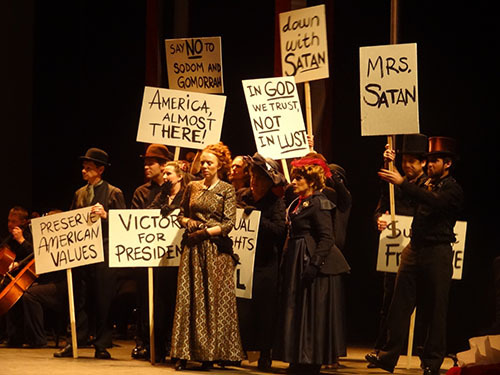
In an aria from the new opera Mrs. President, Victoria Woodhull, the first woman to run for President of the United States, sings, “I’m told I’m a citizen by right of birth. We pay taxes. We obey the same laws. We supply you with citizens. We give them up for war. Yet we’re poor, powerless, the property of men.”
In 1872, Woodhull ran for President of the United States at a time when women did not even have the right to vote. Her opposition called her ‘Satan’, claiming she belonged in jail. Mrs. President, an opera in two acts by Victoria Bond with libretto by Hilary Bell, tells her incredible story. The opera will be performed at the National Opera Center later this month just prior to the 2016 US elections. Soprano Valerie Bernhardt plays Victoria Woodhull, and the tenor Scott Ramsay is cast as Henry Ward Beecher, the high-powered preacher determined to destroy her.
It’s a story, according to Bond, about a woman who “defied the establishment that wanted to prevent her from achieving full equality with men.”
The New York Times has described Victoria Bond’s compositions as “powerful, stylistically varied and technically demanding,” while the Wall Street Journal has referred to her conducting as “impassioned”. She is without doubt a major force in 21st century concert music and it is my pleasure to welcome her to The Global Search for Education.
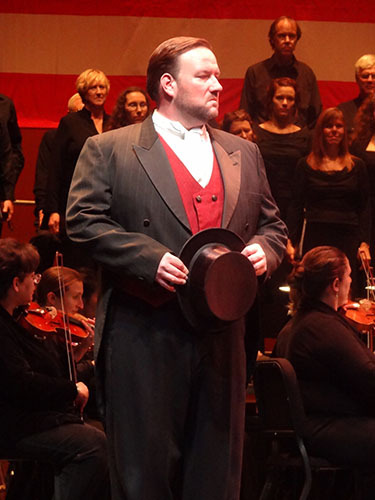
Victoria, please give us a brief synopsis of your opera and tell us why you were inspired to write it.
Victoria Woodhull was the first woman to run for President before women were able to vote, and even though she knew she would never be elected, she used the presidential platform to further her goal of complete equality. One of the issues was “free love,” by which she meant the freedom of a woman to terminate a loveless relationship. Women were considered chattel with no rights to their children or their property, the husbands having complete control. Woodhull tried to get the most powerful religious leader to endorse her campaign. Henry Ward Beecher was adored by his congregation. Few knew that he was having secret liaisons with many young women. Victoria Woodhull did know this and when he refused to endorse her, she published an article in her newspaper about his affairs, causing a scandal. His revenge was having her jailed on election night.
Her story inspired me because she was a fearless woman who stubbornly followed her dream despite overwhelming resistance. She fought for women’s equality long before the term “feminism” and made enormous strides despite resistance that would have crushed most people.
What were the challenges Woodhull faced that were different to ones women face today? Which challenges do you believe are similar to what women running for leadership roles face today?
I am struck by the similar epithets that are hurled at Hillary Clinton to those that Woodhull was branded with. She was reviled and called “Mrs. Satan.” They wanted to have her jailed and accused her of being dishonest and a threat to decent society. Even though today women can vote and have freedoms imagined in Woodhull’s day, so many of those things she fought for have still not been achieved, and throughout the world we are constantly reminded how so many women in the world live under constant fear.
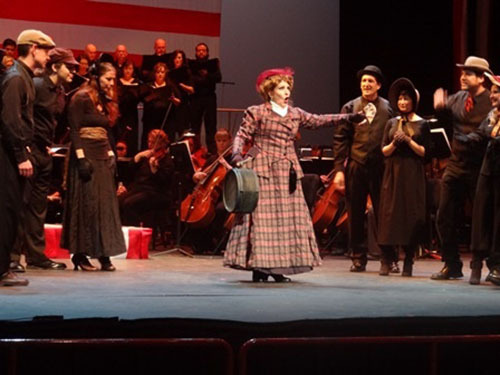
Does Victoria Woodhull’s story inspire in the same way as those of other female role models e.g. Harriet Tubman or Eleanor Roosevelt? Is her legacy enduring? Is it relevant to young people today?
I believe her legacy equals those icons you mention and should be included in the “Hall of Fame” alongside the others.
What’s your favorite song or aria from the opera – your favorite lyrics that give us some insight into the soul of Victoria Woodhull?
Woodhull states her position in an aria she sings when she declares her candidacy at Steinway Hall. Here is what she sings: “I’m told I’m a citizen by right of birth. We pay taxes. We obey the same laws. We supply you with citizens. We give them up for war. Yet we’re poor, powerless, the property of men. Does he become her chattel? May she beat him and rape him, the law on her side? Man and woman are one, and that one is the man!”
How important was music and art to you in your own education? What role do you think it should play in teaching children important lessons and stories?
I was born into a family of musicians going back many generations so it was assumed that I would be a musician myself. I strongly believe that music is an important aspect of education and must be included in all curriculums.
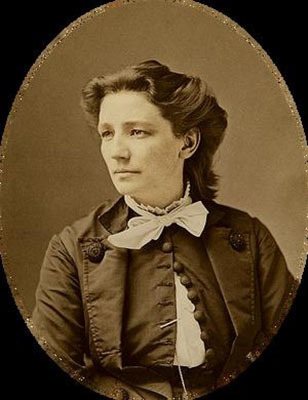
What power does music have in changing and shaping young people’s lives?
Music has the ability to transform young people’s lives. This has been proven in so many situations that there should be no question about its importance. Examples like “El Sistema” in Venezuela where at risk youth are given musical instruction, rescuing them from a life of destruction to one of achievement and fulfillment.
What obstacles do you think are slowing down progress to gender equality in politics and the work place? What have your experiences as an international composer taught you?
I believe that the obstacles standing in the way of women’s equality and freedom from male domination are firstly, religions that preach male superiority and female subjugation, and secondly, political systems designed to rob women of their legal rights. In my opinion, these are the two major hurdles around the world that need to be revised before women can take their place in a society that values them and treats them as complete equals. We are far from this reality at the moment, and women are led to believe that things must remain the way they were. This is even true in our own country as well as in so many other countries where restrictions on women’s freedom are entrenched in their laws. It will take powerful leaders to change them.
My experiences travelling around the globe have taught me that the vast potential contribution women can make is being squandered due to lack of support, both financial and otherwise.
What lessons can any nation take from the story of Victoria Woodhull?
Woodhull’s story has a lot to teach us about the power of one person to bring about awareness and eventual change. Even though she did not reach her goal, she believed that others would come after her and carry her ideas forward.
For more information about Mrs. President
(All Photos are courtesy of Mrs. President)
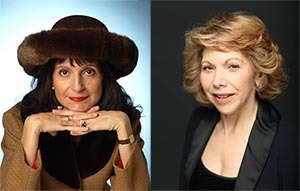
Join me and globally renowned thought leaders including Sir Michael Barber (UK), Dr. Michael Block (U.S.), Dr. Leon Botstein (U.S.), Professor Clay Christensen (U.S.), Dr. Linda Darling-Hammond (U.S.), Dr. MadhavChavan (India), Professor Michael Fullan (Canada), Professor Howard Gardner (U.S.), Professor Andy Hargreaves (U.S.), Professor Yvonne Hellman (The Netherlands), Professor Kristin Helstad (Norway), Jean Hendrickson (U.S.), Professor Rose Hipkins (New Zealand), Professor Cornelia Hoogland (Canada), Honourable Jeff Johnson (Canada), Mme. Chantal Kaufmann (Belgium), Dr. EijaKauppinen (Finland), State Secretary TapioKosunen (Finland), Professor Dominique Lafontaine (Belgium), Professor Hugh Lauder (UK), Lord Ken Macdonald (UK), Professor Geoff Masters (Australia), Professor Barry McGaw (Australia), Shiv Nadar (India), Professor R. Natarajan (India), Dr. Pak Tee Ng (Singapore), Dr. Denise Pope (US), Sridhar Rajagopalan (India), Dr. Diane Ravitch (U.S.), Richard Wilson Riley (U.S.), Sir Ken Robinson (UK), Professor Pasi Sahlberg (Finland), Professor Manabu Sato (Japan), Andreas Schleicher (PISA, OECD), Dr. Anthony Seldon (UK), Dr. David Shaffer (U.S.), Dr. Kirsten Sivesind (Norway), Chancellor Stephen Spahn (U.S.), Yves Theze (LyceeFrancais U.S.), Professor Charles Ungerleider (Canada), Professor Tony Wagner (U.S.), Sir David Watson (UK), Professor Dylan Wiliam (UK), Dr. Mark Wormald (UK), Professor Theo Wubbels (The Netherlands), Professor Michael Young (UK), and Professor Minxuan Zhang (China) as they explore the big picture education questions that all nations face today.
The Global Search for Education Community Page
Follow C. M. Rubin on Twitter: www.twitter.com/@cmrubinworld



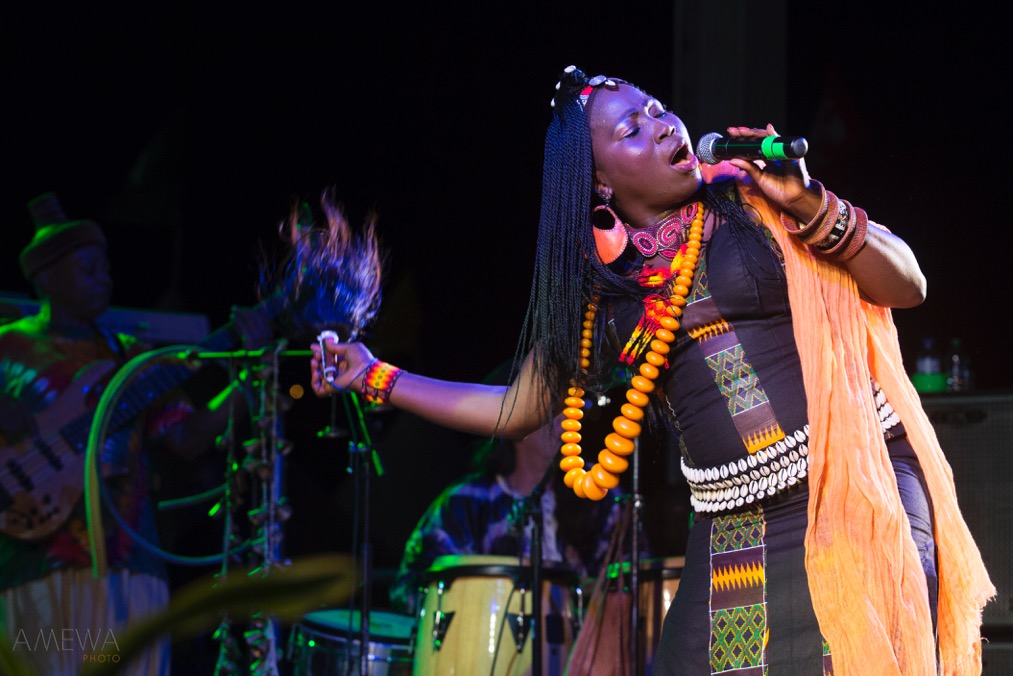
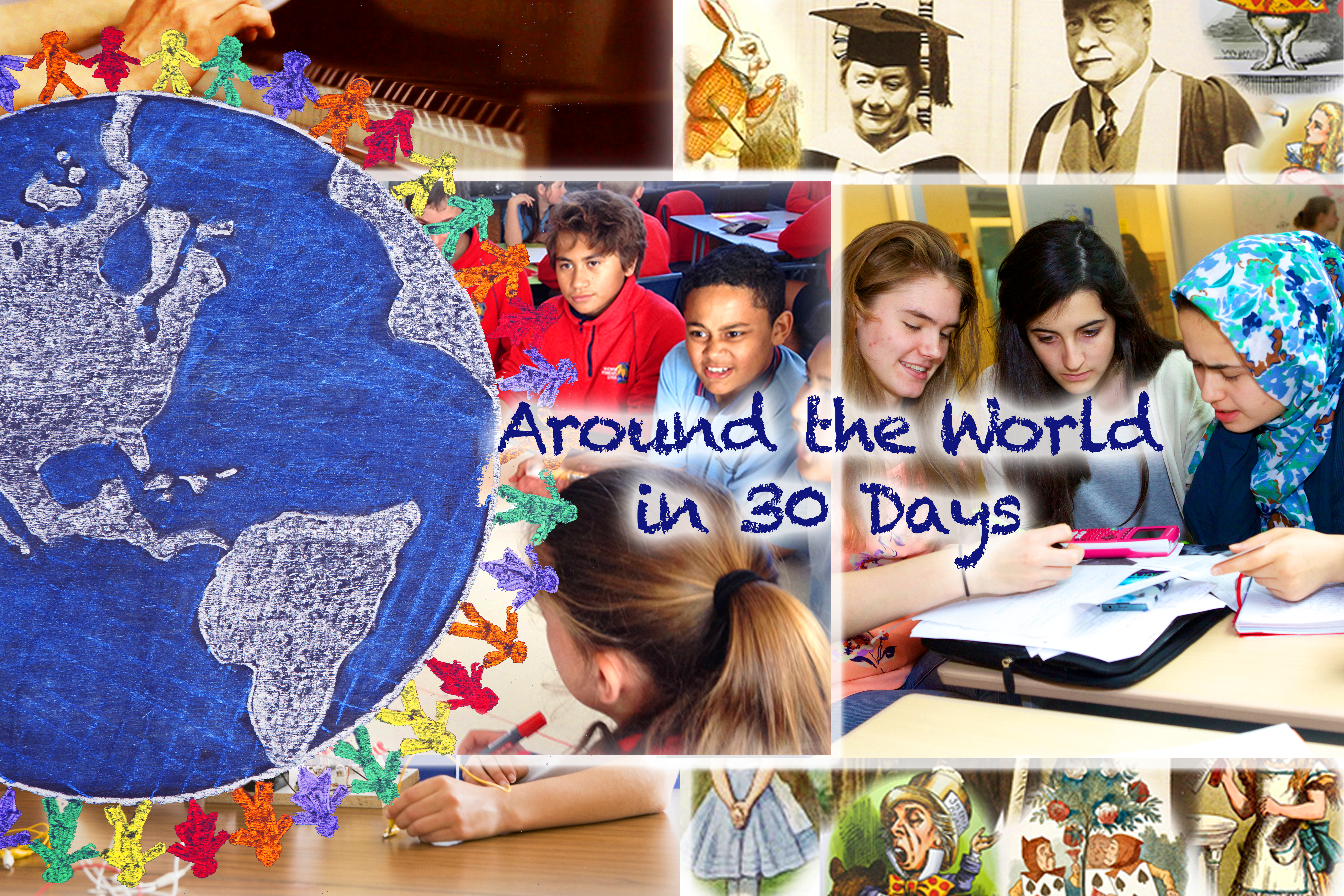
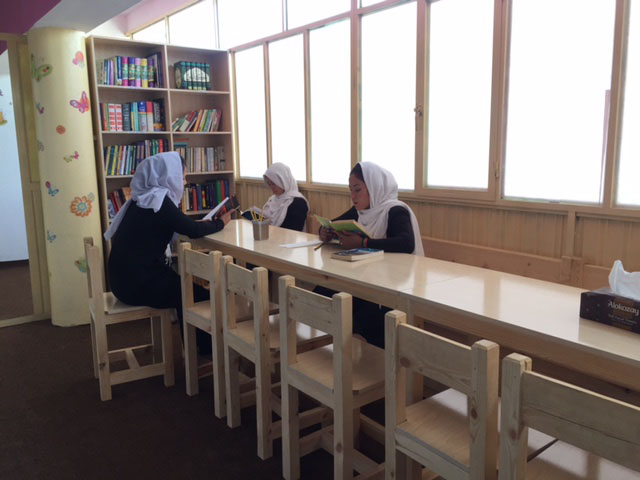
Recent Comments